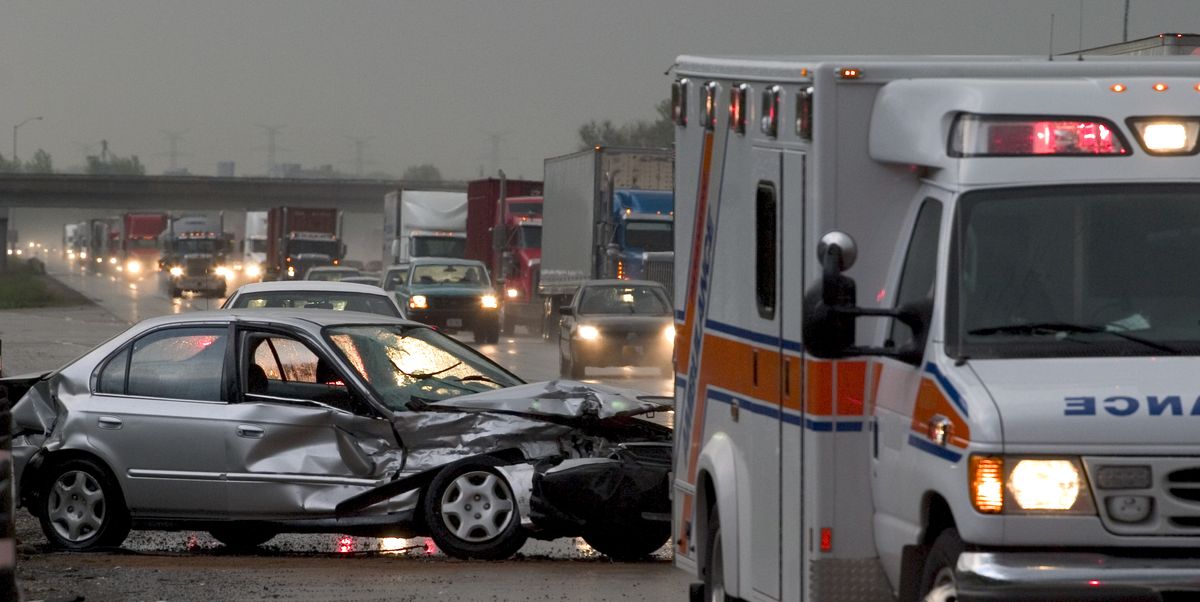
When Helen Witty’s 16-year-old daughter was killed by a drunk and drugged driver, in her grief she found some comfort in a single word: crash. While most of those around her were referring to her daughter’s death as an accident, Witty says that one word—crash—helped her change her perception and heal.
The word was “empowering,” she says, after her daughter, Helen Marie, went Rollerblading in 2000 and never came home. “It was a bright, sunny afternoon. She went to the end of our driveway, blew me a kiss, and said, ‘I’ll be right back. I’ll stay on the sidewalk. I’ll cross at the crosswalks. I love you.’ And I never saw her again.”
A 17-year-old girl who had spent the afternoon drinking and smoking pot with friends got behind the wheel of her car, got on the phone, and lost control of her vehicle, striking and killing Helen Marie. The word “accident,” Witty says, implies there wasn’t a cause. “A drunk-driving death or injury is 100 percent preventable,” says Witty. “There was a cause. Somebody was at fault.” Witty, now the president of Mother’s Against Drunk Driving (MADD), believes language matters. And “crash” is a word, she says, that ” that goes straight to your heart.”
MADD was the first organization to give a voice to the pain the word “accident” was causing, says Mark Rosekind, the former administrator of the National Highway Traffic Safety Administration (NHTSA). “You’re doing a disservice to our lost family members by pretending somehow this was chance when, in fact, it was a drunk driver, or nowadays a distracted driver, or sleepy driver,” he says. By their very definition, accidents are not intentional, but choices are, and that is where the difference lies, safety advocates say.
“People are intentionally driving over the speed limit,” says Danny Harris, executive director of New York City-based Transportation Alternatives. “People are intentionally on their phone while they are on the highway. People are intentionally drinking or taking drugs, then deciding to operate a motor vehicle. These things are tragic, and they’re not accidents.”
The “accident” vernacular is rooted in our history and ingrained in our speech patterns. “It’s just so automatic, it’s like a verbal tic almost,” says Rosekind. “It’s just unconscious for so many people.” And that, advocates say, was purposeful.
Even 100 years later, safety advocates say the word “accident” remains a tool wielded to victim-blame, under the same umbrella as concepts like “The pedestrian wasn’t wearing light-colored clothing” or “The child ran away from a parent across an intersection.”
“And we start to add these other layers that make these things seem like they are just everyday parts of … life, as opposed to preventable tragedies, which we believe that they are,” says Harris. Transportation Alternatives is the parent of Families for Safe Streets, a national grassroots organization that has pushed terminology changes from New York City to San Francisco.
Rosekind says this simple word change, “can translate directly into action that could bring safer roads,” because causation can lead the car industry, engineers, policymakers, and advocates to research and work on why crashes happen; intervention, in turn, can lead to measures that can save lives and prevent injuries. “That’s a very different mindset and approach to safety,” says Rosekind.
While changing how we describe car-specific incidents that kill or injure was part of the mission MADD set in its founding 40 years ago, the federal government didn’t get behind the concept until 1994. Rosekind says it was Ricardo Martinez, the 10th administrator of NHTSA, who kicked off the campaign “A Crash Is Not an Accident.” Still, not all have followed its lead.
More than half of the state departments of transportation in the U.S. have not set policies to do away with “accident” in favor of “crash.” And so for many, the terminology remains not only imprinted in our brains but preprinted on our paperwork. After all, in thousands of jurisdictions across the country, first responders at the scene of a crash fill out forms titled “Accident Report.”
This content is created and maintained by a third party, and imported onto this page to help users provide their email addresses. You may be able to find more information about this and similar content at piano.io
